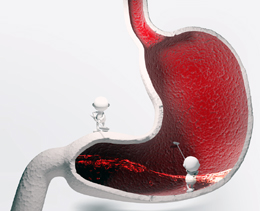Has the big data at Health Insurance Review & Assessment Service (HIRA) influenced the development of the new reflux esophagitis therapy CJ-12420 by CJ Healthcare?
The answer is “yes,” according to Bae Soo-in배수인, an executive director at HIRA심평원.

Bae proposed to make the most of the healthcare big data, and cited CJ-12420 as its successful example, in a policy report titled the “Use of big data by the pharmaceutical industry in the Fourth Industrial Revolution era.” Korea Pharmaceutical and Bio-Pharma Manufacturers Association(KPBMA)한국제약바이오협회released the report.
Bae said HIRA opened its healthcare big data in 2015 and has since expanded its opening of the public data.
An increasing number of pharmaceutical companies are using medicine-related big data for various purposes, such as setting up marketing strategy through market analysis, and conducting research based on clinical trials, Bae added.
The healthcare big data HIRA provides divides into the “public data service, in the form of data set or Open API, of processed statistic values through big data integration and analysis, the “portal service” which visualizes information through medical use statistics or Global Information system (GIS) and provides them, and the “big data analysis service” which makes users analyze de-identified big data.
Among them, drugmakers mainly use the big data analysis service, which allows for free analysis by users.
HIRA also provides Korea Pharmaceutical Information Service (KPIS), which supports the use information and market trend analysis if drugmakers request the information concerning the use of medicinal products.
The businesses can conduct cost-effective research and development in a short period by analyzing the vast amount of medical big data.
A case in point is the new reflux esophagitis therapy CJ-12420 by CJ Healthcare, Bae said in the report.
CJ Healthcare analyzed HIRA’s big data and confirmed 80 percent of patients with indigestion suffered from reflux esophagitis, too.
Later, the company has developed a new potassium-competitive acid blocker (P-CAB), CJ-12420. It worked fast, inhibited continuous gastric acid secretion, increased patients’ convenience without meals, and showed the advantage of small interaction with other drugs.
CJ Healthcare expects CJ-12420 will replace the existing primary therapy of reflux esophagitis PPI, the domestic market of which is about 350 billion won ($394 million).
CJ Healthcare has finished phase 3 clinical trials and applied for approval by the Ministry of Food and Drug Safety (MFDS)식약처. It hopes to release it officially by December 2018.
The company has also exported the related technology. In 2015, it made a technology export contract worth 100 billion won with China’s drugmaker Louxin.
“In 2013, McKinsey reported global drugmakers could reduce R&D costs by 80 trillion won through the analysis of big data. The report indicated the analysis of healthcare big data and strategic use could be effective countermeasures,” Bae said. “HIRA, the leading operator of big data, will expand the support for the pharmaceutical industry to use data easily and conveniently in the cloud-based environment, which guarantees information protection and de-identification.”

